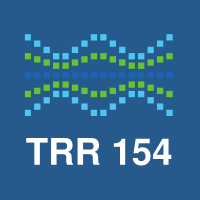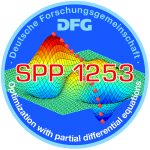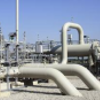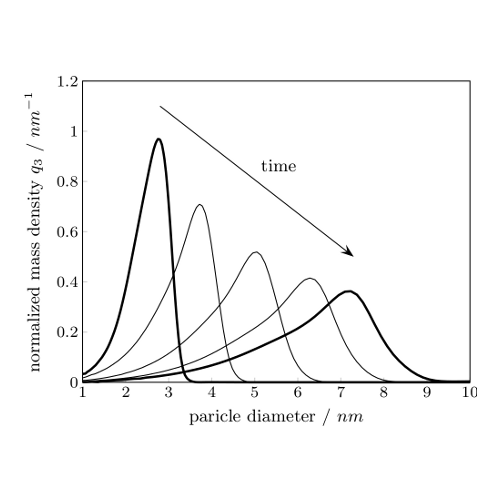Programms coordinated by the DFG
DFG-koordinierte Programme
|
Feasibility: Robust Nodal controllability (2014-2017) We study optimal control problems with hyperbolic pdes and boundary data with stochastic influence. Nodal controls means that the control acts at a finite number of points in the network. We develop an analytical framework for the systems dynamics, risk-neutral and risk-averse objective functions and and prove the existence of optimal controls. We also derive necessary optimality conditions. To treat the stochastic influence, the analysis of the optimal value function is necessary. |
| Prof. Dr. Martin Gugat (Erlangen), Prof. Dr. Rüdiger Schultz (Duisburg) |
|
Control of System Dynamics in Gas and Water Networks (2009-2012) The dynamics in gas or water networks are governed by the isothermal Euler equations or the Saint Venant equations (shallow water equations), respectively, which form hyperbolic balance laws. For these networks we analyse (optimal) control and stabilization problems as well as the numerical application of the theoretical results. Efficient control of gas and water transportation networks plays an important role in industrial and municipal supply as well as in flood management. The gas flow through pipes can be controlled via compressors and valves, the water flow in canals can be controlled via pumping stations and flow gates. The picture shows a part of a compressor station (source: WINGAS). The dynamics in gas or water networks are governed by the isothermal Euler equations or the Saint Venant equations (shallow water equations), respectively, which form hyperbolic balance laws. For these networks we analyse (optimal) control and stabilization problems as well as the numerical application of the theoretical results. This project is a cooperative project between the RWTH Aachen University and the Friedrich-Alexander-University Erlangen-Nuremberg and is funded by the DFG Schwerpunktprogramm 1253. |
|
Prof. Dr. Günter Leugering (Erlangen), Prof. Dr. Martin Gugat (Erlangen), Dr. Markus Hirsch-Dick (Erlangen), Prof. Dr. Michael Herty (Aachen) |
|
Optimization of Particle Synthesis The economic production of nanoscaled particulate products with exactly pre-defined characteristics is of enormous relevance. Although there are different particle formation routes they may all be described by one class of equations. The economic production of nanoscaled particulate products with exactly pre-defined characteristics is of enormous relevance. Although there are different particle formation routes they may all be described by one class of equations. Therefore, simulation of such processes comprises the solution of nonlinear, hyperbolic integro-partial differential equations. This project aims to study this class of equations in order to develop efficient tools for the inverse solution, i.e. determining the optimal process conditions to achieve a desired product property. |
| Prof. Dr. Günter Leugering (Erlangen), Prof. Dr.-Ing. Wolfgang Peukert (Erlangen), Dr. Michael Gröschel (Erlangen) |
|
A variational approach to medical image registration Based on the original transport problem raised by Gaspar Monge and Leonid Kantorovich a registration procedure was established, which is mainly characterized by its inherent mass conservation property. Image registration focuses on the anatomically correct overlay of images resulting from different imaging techniques (modalities), recording time or individuals. Particularly the corresponding techniques are required for the the combination of morphological and functional image data, the transfer of planning data to the patient or the reliable evaluation of the success of a cancer therapy. Based on the original transport problem raised by Gaspar Monge and Leonid Kantorovich a registration procedure was established, which is mainly characterized by its inherent mass conservation property. |
|
Prof. Dr. Günter Leugering (Erlangen), Prof. Dr. Kathrin Klamroth (Wuppertal), Dr. Oleg Museyko (Erlangen), Dr. Michael Gröschel (Erlangen), Dr. Miachael Stiglmayr (Wuppertal) |






